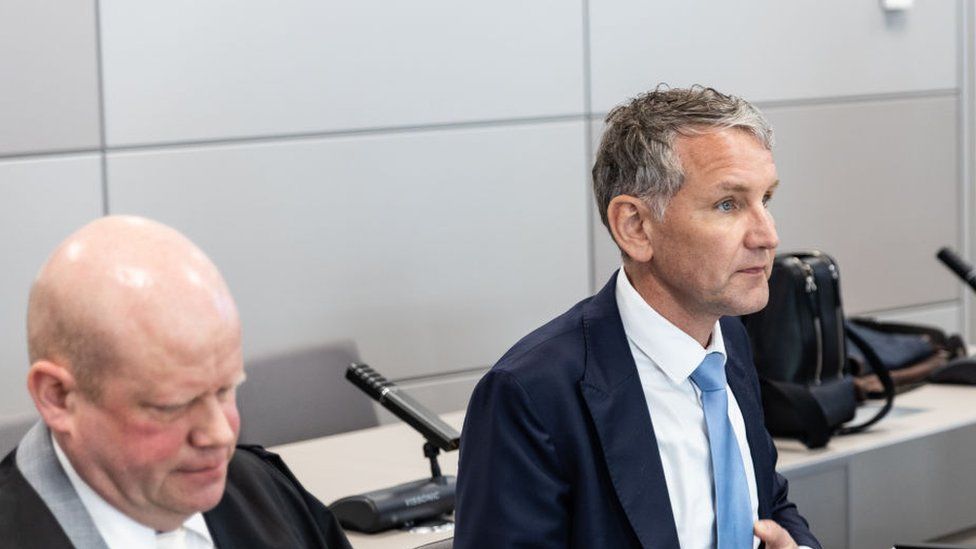Björn Höcke: Far-right German politician on trial for Nazi slogan
- Published

A leading far-right German politician has gone on trial, accused of using a Nazi slogan.
Björn Höcke, who leads the Alternative for Germany (AfD) party in Thuringia, is being tried for saying the words "Everything for Germany!" at a 2021 rally.
The slogan is associated with the SA stormtroopers, who played a key role in the Nazis' rise to power.
Mr Höcke - a former history teacher - denies knowing the phrase's roots.
He faces up to three years' imprisonment.
At a campaign event in the state of Saxony-Anhalt in May 2021, Mr Höcke ended a speech by saying: "Everything for our homeland, everything for Saxony-Anhalt, everything for Germany!"
Prosecutors say he knew the phrase was banned for being associated with the Nazi Sturmabteilung (SA). But he says it is a "common saying" which should not be criminalised.
At another rally in December 2023, he said: "Everything for…", to which the audience responded: "Germany!"
Prosecutors sought to try him for both incidents but the court in Halle decided to judge him only for the 2021 rally. A verdict is expected next month.
Articles in the German press have pointed to the recorded use of the slogan by several high-ranking Nazis, including Adolf Hitler's deputy Rudolf Hess and the head of the Wehrmacht high command, Wilhelm Keitel.
Protesters gathered outside the courtroom brandishing placards reading "Stop the AfD" and "Björn Höcke is a Nazi".
Mr Höcke did not comment on the charges on the first day of the trial.
His party is currently leading in the polls in Thuringia, which is holding elections later this year. However, even if it comes first in the vote, it will face a difficult search for allies to form what would be its first state government in Germany.
Björn Höcke has previously called the Holocaust memorial in Berlin a "memorial of shame", saying Germany should make a "180-degree turn" in its attitude to commemorating the genocide.
Related Topics
- Published1 February
- Published13 February